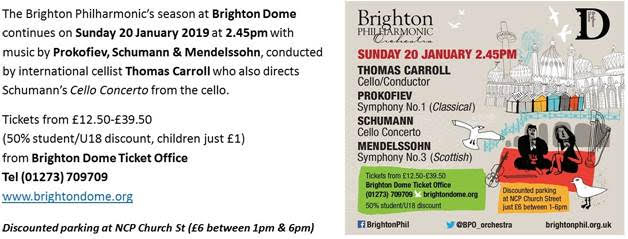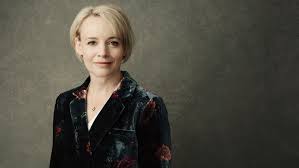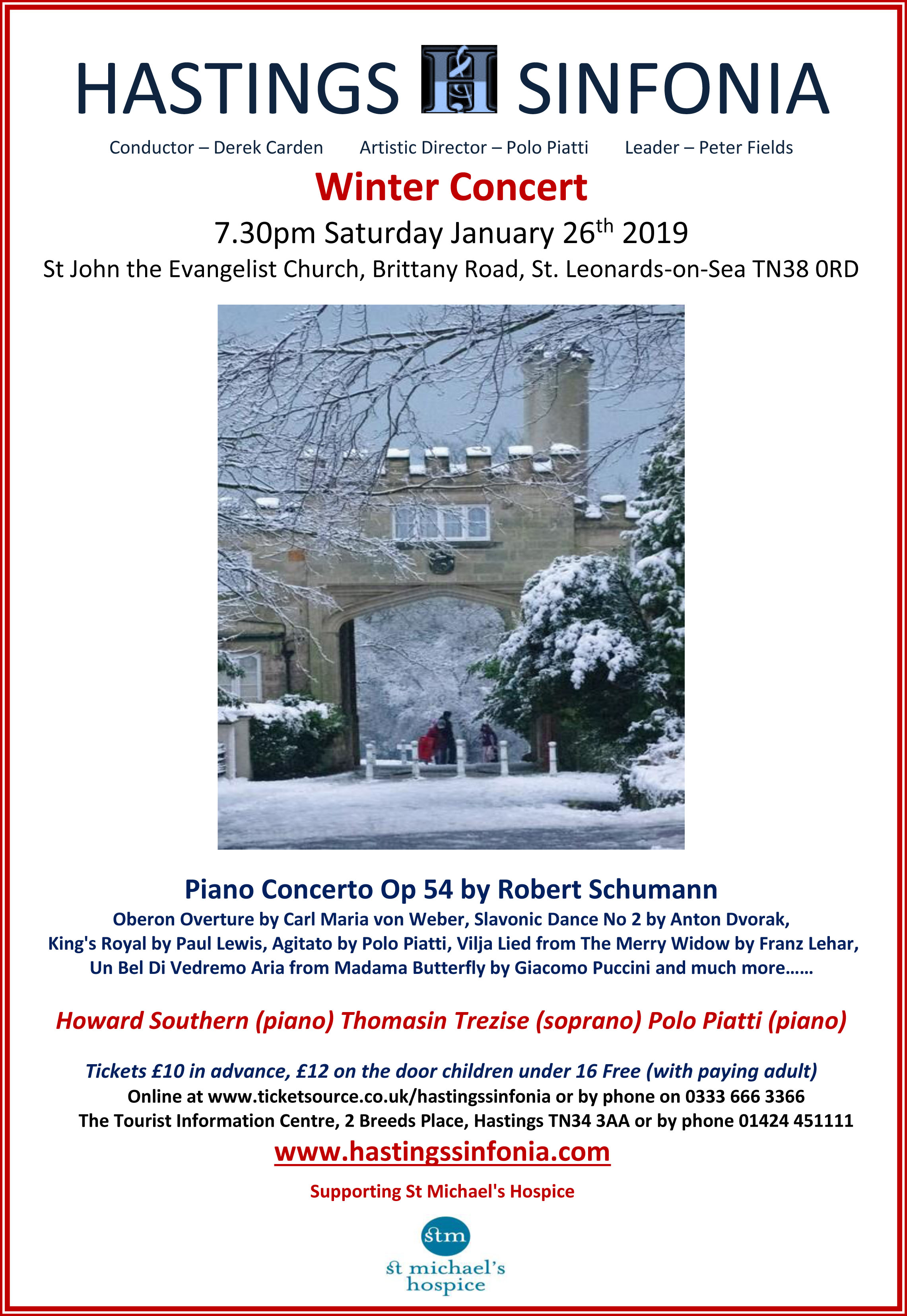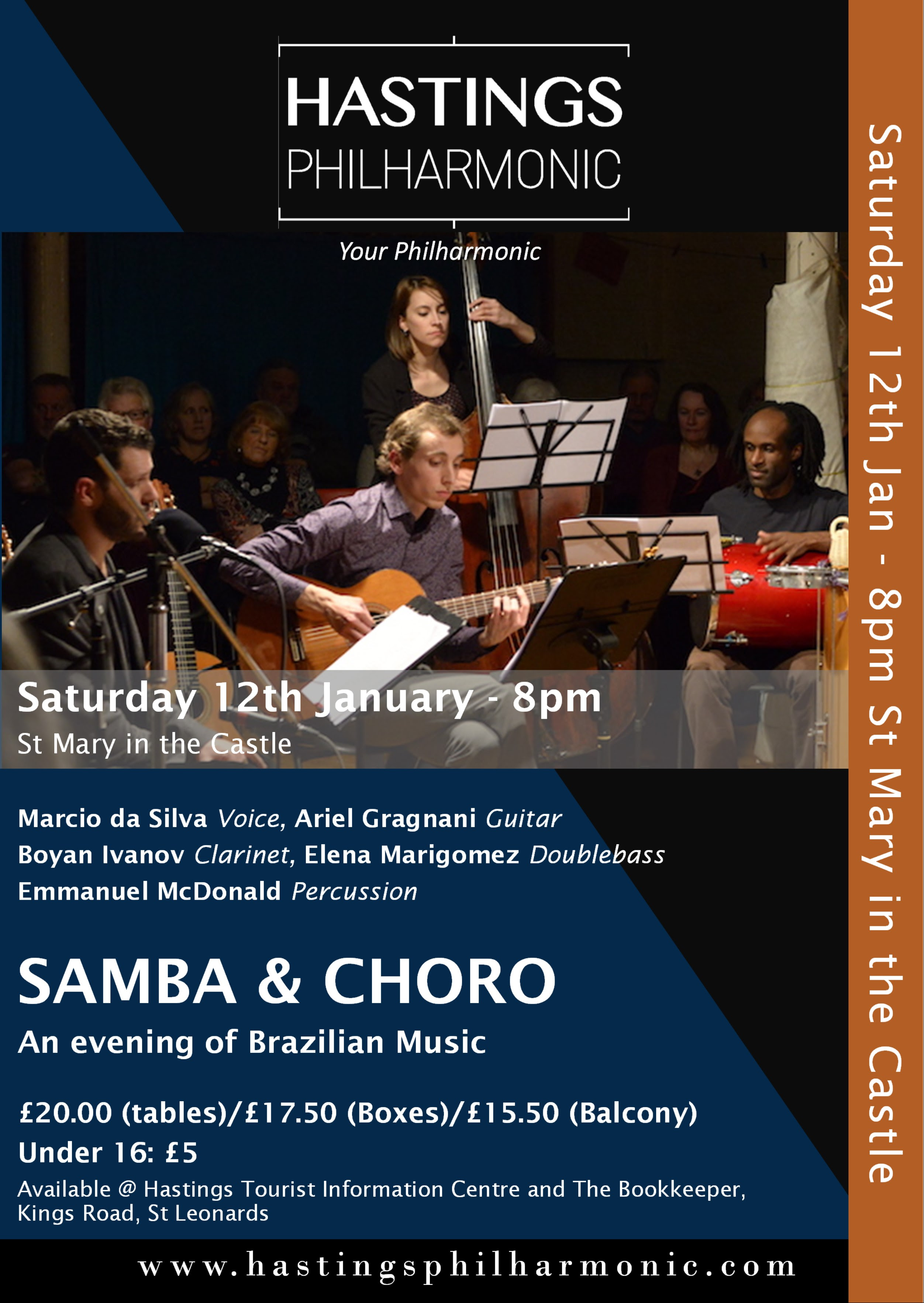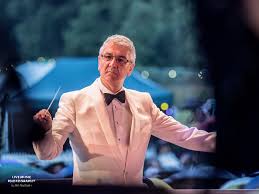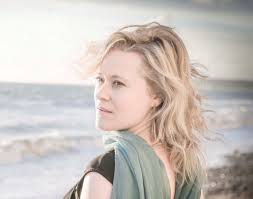Artistic Administrator Ian Brignall introduces the second half of the Brighton Phil’s season of Sunday afternoon concerts at Brighton Dome:
“If the first half of this Brighton Philharmonic Orchestra’s 2018/19 season captivated your musical senses, the next four concerts have got amazing musical surprises and some magnificent music written by some highly gifted composers.
On Sunday 20th January we welcome back as cellist/director the brilliant Thomas Carroll. A former pupil of the Menuhin School, Thomas has forged a career as a highly saught-after solo cellist all over the world. For the last few years Thomas has been conducting to great acclaim, and we welcome him back for a concert of Prokofiev’s Classical Symphony, Schumann’s Cello Concerto and Mendelssohn’s ever-popular Symphony No.3, ‘the Scottish’. Prokofiev wrote the Classical Symphony copying the style of Haydn whilst still studying, and decided to test his own composition ability by writing it away from the piano. Schumann wrote his Cello Concerto towards the end of his life and though he never heard it performed, it is a hugely virtuosic work that makes huge demands on the cellist. Mendelssohn was, even early on in his career, a hugely talented and very popular composer – this symphony, his third, doesn’t disappoint; full of orchestral colour it depicts the Scottish highlands perfectly.
For our second concert of 2019 we welcome back one of our most popular guest conductors, Stephen Bell, on Sunday 10th February. For this concert we head firmly into the realm of the late Romantic composers with Wagner’s atmospheric and hugely moving Prelude and Liebestod from his opera Tristan and Isolde. We welcome the Welsh soprano Camilla Roberts to sing Richard Strauss’s Four Last Songs, four of the most beautiful and heartfelt songs ever written for voice and orchestra. To conclude this concert we change our emotional scene and head to the stunning writing of a very young Russian composer, Reinhold Glière. This first symphony was composed whilst he was still at music college, and shows a young composer with a terrific gift for melody and a mastery of orchestral writing.
Barry Wordsworth, our Conductor Laureate, returns to conduct our last two concerts in March and we have two totally different programmes to whet the listener’s appetite.
On Sunday 3rd March we take the theme of travel, holidays and the summer. The Hebrides Overture needs no introduction; the sound of the sea and wind is masterfully captured by the young Mendelssohn. The slightly calmer waters of Le Lac Enchanté are painted beautifully by the Russian composer Anatoly Lyadov, before a boisterous and tuneful mid-summer party in Sweden for full orchestra by the great Swedish orchestrator Hugo Alfvén. To get to our destinations we find ourselves on the locomotive Pacific 231 by the Swiss composer Arthur Honegger. In our travels we visit the capital of London in a suite by the British composer Eric Coates, then rest quietly by the Banks of Green Willow by George Butterworth. A favourite holiday destination is Italy and our musical travelogue concludes with Tchaikovsky’s fabulous Capriccio Italien on the bustling streets of Rome.
The final concert of our season on Sunday 17th March is gloriously romantic and before one of the most Romantic of all piano concertos (Rachmnaninov’s 3rd) played by the Scottish pianist Steven Osborne, we have a Joyeuse Marche and after the interval Hector Berlioz’s epic struggle with life and love – Symphonie Fantastique.
Four very different but inspiring concerts of brilliant music for a Sunday afternoon.”
Tickets for all concerts are £12.50-£39.50 (50% student/U18 discount/children just £1) from Brighton Dome Ticket Office, (01273) 709709, www.brightondome.org
Discounted parking (just £6) available at NCP Church Street Car Park between 1-6pm.

